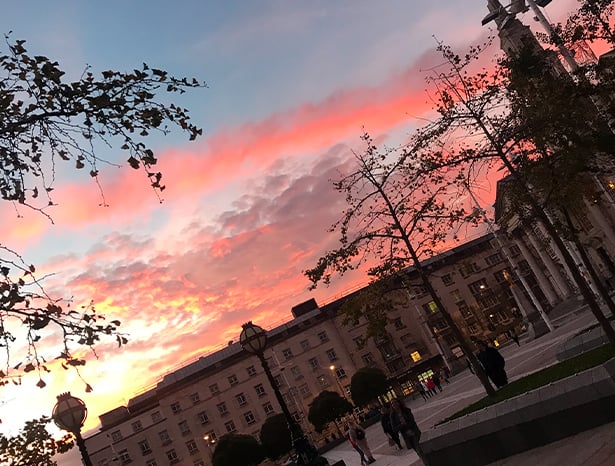
‘A good statement contains lots of tangible achievements and experiences that panel members can draw upon in their interviews. Statements that speak vaguely of passion for a subject, but lack detail and specifics are less useful.’
The personal statement is your opportunity to talk about you, and why you want to enrol on a particular course. You should describe the ambitions, skills, and experience that’ll make you suitable for the course.
Your personal statement is a chance to get noticed for the unique talents and experiences you have. It’s an important part of the application process as it’s an opportunity to talk about yourself and your passions, outside of your grades.
We’re going to talk you through how to make the most of the 4000 characters and write a personal statement that stands out.
When reading your personal statement, admissions tutors are looking for evidence that you’re passionate and knowledgeable about the subject area you’re looking to study further and have the relevant skills, experiences, and potential to be a great student.

‘A good statement contains lots of tangible achievements and experiences that panel members can draw upon in their interviews. Statements that speak vaguely of passion for a subject, but lack detail and specifics are less useful.’
Have a look at our guide to writing an undergraduate personal statement, and then consider what other specific things conservatoires may be looking for. Think about including the following:
The personal statement is split into three separate questions:
This is your opportunity to showcase your passion and knowledge and to demonstrate to universities and colleges why it’s a good fit for you and your future ambitions.
Examples of what you might talk about here are:
Have you been inspired by a key role model or moment in your life? Perhaps the conservatoires you're applying to have lecturers, staff, or alumni that have inspired you about your chosen instrument or art form and you're excited to learn from them. We’re all driven by something and it’s important to talk about how yours has led you to this course or subject area.
Perhaps there’s a particular subject area you’ve researched and can’t wait to learn more about. An artist, musician, or subject expert doing great things that have sparked your interest? Universities and colleges want to see you’ve done your research so they can be confident this is something you will enjoy and excel in. This is a great place to highlight super-curricular activities as evidence of curiosity and interest in the subject outside of the classroom.
If you already have a particular goal in mind you could talk about how you’ll use this to launch your career. If you don’t, think about what’s important to you and your future, and how the knowledge gained from your chosen course(s) will help you achieve this.
This is your chance to shout about the relevant or transferable skills you’ve gained and highlight your understanding of how they will help you succeed.
Examples of what you might talk about here are:
This is your chance to talk about any other activities you have undertaken outside of your formal education or personal experiences which further demonstrate your suitability for the course. This section is likely to be highly personal to you and anything you do include should reflect on why you’re including it.
Examples of what you might talk about here are: